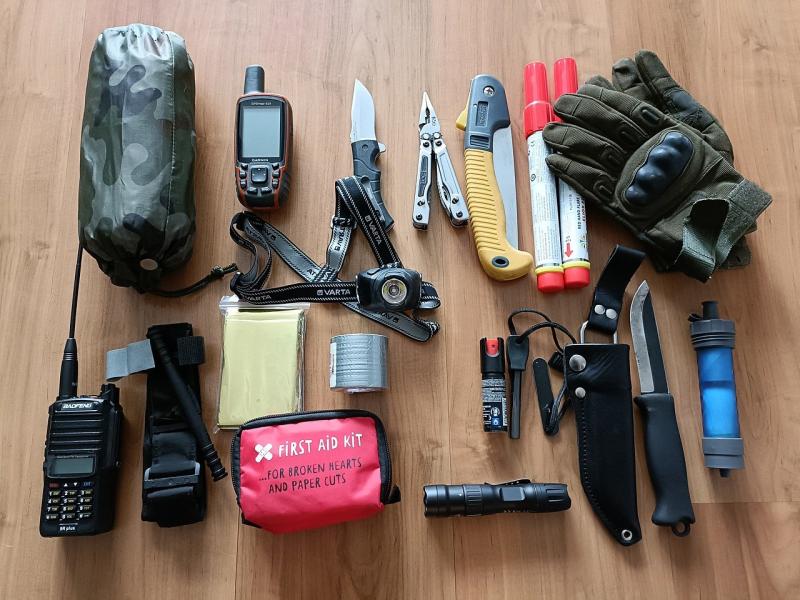When disaster strikes, staying calm can feel impossible. But remember, panicking doesn’t help anyone. Keep your wits about you to make smart decisions. Taking a moment to breathe deeply and think can go a long way. Here are some survival tips for natural disasters that emphasize the importance of staying composed.
First, assess the situation. Is there an immediate danger? If you're in a safe spot, take a moment to gather your thoughts. Ask yourself what you need to do next. Prioritize your actions: get to safety, check in with loved ones, and ensure you have the supplies you need.
Also, stay informed. Use your phone or radio to get updates about what’s going on. Knowing the latest information can help you make better choices. Look for instructions from local authorities—they are a great source of guidance during events like hurricanes or earthquakes.
Finally, surround yourself with a reliable plan. Think about what you would need in case of an emergency, and have items ready to grab quickly. Whether it's a go-bag with food, water, and essentials, or a family meeting spot, having a plan keeps you grounded. The more prepared you are, the easier it is to think clearly when chaos unfolds.
Know Your Emergency Plan
Having a solid emergency plan is a must when it comes to dealing with natural disasters. Knowing what to do ahead of time can make a huge difference in keeping you and your loved ones safe. Start by gathering important information, like contact numbers for family and local emergency services. Write it all down and keep it somewhere easy to find!
Next, think about where you'll go if you need to evacuate. Identify local shelters or even friends or family who live outside the danger zone. It’s also smart to have a go-bag ready to grab in an emergency. Include essentials like water, non-perishable food, a flashlight, and any medications you might need.
Don’t forget to discuss your emergency plan with everyone in your household. Make sure everyone knows where to meet and what to do if something happens when you’re not together. Role-playing your escape route or emergency procedures can help kids feel more secure and prepared.
Last but not least, stay updated on alerts and warnings for your area. Download apps that provide real-time information on natural disasters. Staying informed is one of the best survival tips for natural disasters, helping you make quick decisions in a crisis.
Essential Supplies for Every Situation
When it comes to being prepared for emergencies, having the right supplies can make all the difference. Here are some essential items you should consider keeping on hand to ensure you're ready for any situation that might arise. These safety supplies align perfectly with survival tips for natural disasters.
First off, a well-stocked first aid kit is a must. It should include:
Next, don't forget about food and water. In case of an emergency, having non-perishable food items and clean drinking water is key. Consider packing:
Lastly, a reliable multi-tool can be invaluable in any situation. Look for one that includes:
Having these supplies on hand is a solid first step in being ready for whatever comes your way. Coupled with the survival tips for natural disasters, you can face emergencies with confidence!
Aftermath Care and Recovery Steps
After facing a natural disaster, taking care of yourself and your loved ones is crucial. The aftermath can be overwhelming, but following some simple recovery steps can make a big difference. Here are some easy survival tips for natural disasters that can help you get back on your feet.
First, make sure everyone is safe. Check for injuries and provide basic first aid if needed. It's also important to find a safe place to stay, whether it's your home or a temporary shelter. Keep in mind that your mental health matters too. It’s normal to feel stressed or anxious after a disaster, so don’t hesitate to reach out for support from friends or local services.
Next, assess any damage to your property. Take photographs for insurance claims and document everything you can. Start with immediate repairs to prevent further issues like water damage. Remember to keep your receipts as many disaster-related expenses can be reimbursed.
Finally, reconnect with your community. Local organizations often have resources available, from food and shelter to counseling. Volunteering or helping others is a great way to not only aid recovery but also lift your spirits. Following these survival tips for natural disasters will help you navigate the challenges ahead.


